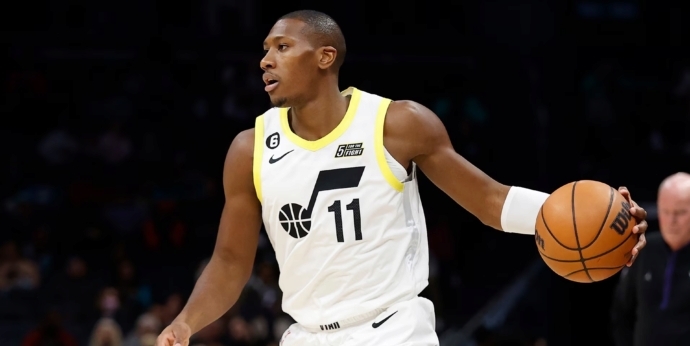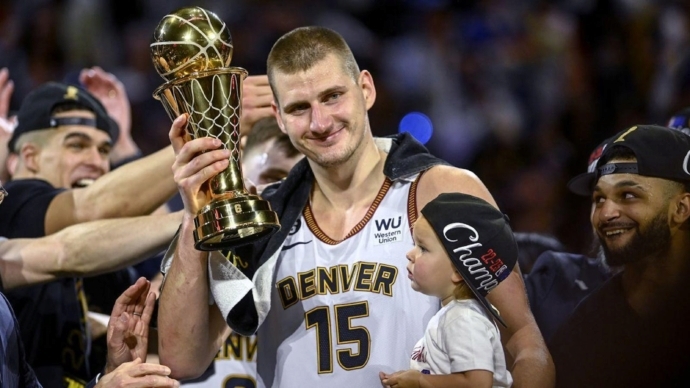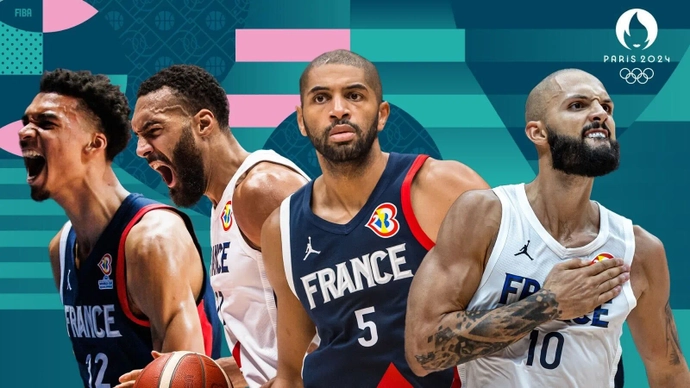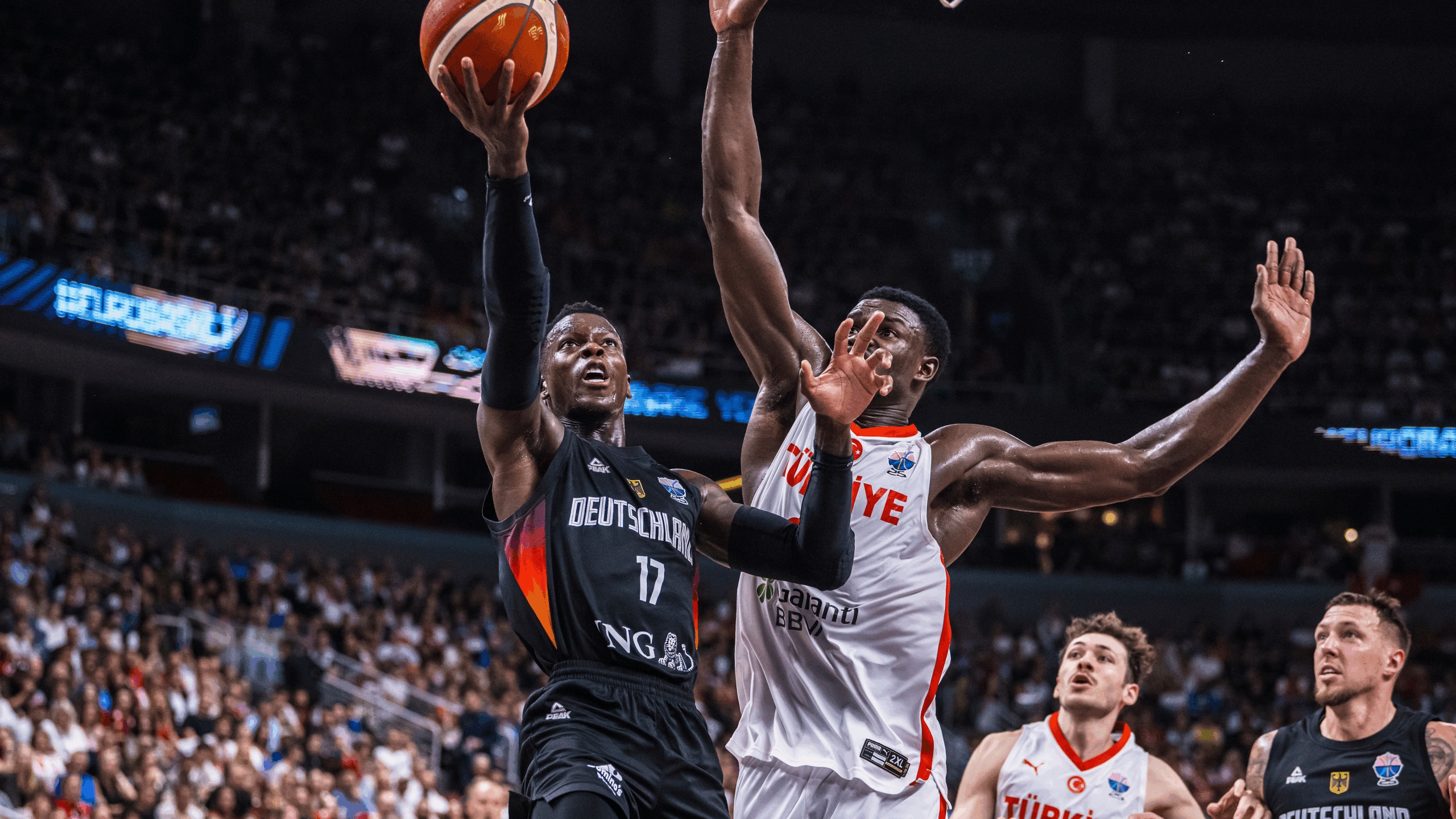For some NBA players, things
don’t click right away. But a rookie struggling is no reason to
fret; most rookies in the NBA are, to put it bluntly, kind of bad.
Adjusting to the size, speed and strength of NBA veterans is a tall
task, but franchises understand that and will usually show patience
regarding rookies.
Sometimes things don’t click in
year two either. Of course, teams want to see improvement in a
player’s counting statistics and feel for the game, but growing
pains are expected for sophomores too. If things haven’t clicked by
year three though, alarms start to go off. When a player still
looks lost on the floor – or is already on his second or third team
– his future prospects start to look a little
bleak.
That’s why the stories of Dennis
Smith Jr. and Kris Dunn are massively impressive. Both are former
top-10 picks who lasted less than two years with the teams that
drafted them (the New York Knicks and Minnesota Timberwolves,
respectively). They have each been waived, overlooked and
altogether neglected. But now, Smith and Dunn have found homes with
teams that expect legitimate production from them this season – and
maybe beyond.
Smith signed a one-year,
$2.5-million deal with the Brooklyn Nets this summer and he will
serve as the team’s backup point guard, leading a second unit that
will also include Dorian Finney-Smith and Royce O’Neale – and has
some serious potential for excitement on the defensive end. Dunn,
meanwhile, just had his 2023-24 contract guaranteed by the Jazz and
will almost certainly get regular minutes in Utah’s
backcourt.
For DSJ, this is all happening
about 18 months after he was cut from an actively tanking Portland
Trail Blazers team when an elbow injury sidelined him for a few
weeks. A midseason waiving by one of the league’s worst teams
certainly feels like the metaphorical closing of a curtain that
could signal the end of a player’s career.
Less than a month before the
2022-23 season, though, the Charlotte Hornets signed Smith to a
one-year deal. The signing was mostly out of necessity, as the
Hornets didn’t have a point guard to back up LaMelo Ball – but it
was a deal nonetheless. If there was ever an example of
“last, last
chance,” this was it.
Back in his home state, Smith
showed from day one that he wasn’t going to let this be the end of
the line, becoming one of the best guard defenders in the
entire league last season. He was in the 95th percentile for
deflections per 36 minutes (via CraftedNBA), fifth in the entire
league in steal rate (2.6%) and opposing teams averaged 10.7 fewer
points per 100 possessions when
Smith was on the floor. That
can’t all
be attributed to him, of course,
but that number in conjunction with other defensive stats show just
how important Smith was to Charlotte’s (surprisingly) stout
defense.
Smith showed flashes of
defensive brilliance long before last season; here he is in 2018
locking up Paul George on a crucial crunch time
possession.
HOLY DEFENSE DENNIS SMITH JR. pic.twitter.com/KEwMsLiQmT
– Nick Angstadt (@nickvanexit)
December 31, 2018
But his complete buy-in on that
side of the ball in 2022-23 is what solidified Smith as someone who
will more than likely stick around for years to come. Stops like
this one against Stephen Curry became the norm for
DSJ.
HORNETS beat the WARRIORS!
Dennis Smith Jr had 13/9/8 & forced OT with this bucket & defense
on Steph Curry pic.twitter.com/2pCMn4eltC— Ballislife.com (@Ballislife)
October 30, 2022
Stifling defense wasn’t the only
reason Smith earned another contract though; he posted the lowest
turnover rate of his career and the best assist-to-turnover ratio
of his career too. His own shooting splits weren’t pretty (47.5%
true shooting), but Smith protected the ball and made enough things
happen for his teammates that calling him a defensive specialist
feels like a disservice.
The man with a vision🤞 @Dennis1smithjr
x @PJWashington
| @HornetsOnBally
pic.twitter.com/XPbrrP6J8Y— Charlotte Hornets (@hornets)
November 21, 2022
Dunn’s career has been just as
big of a roller coaster as Smith’s. After just one season in
Minnesota, he was essentially a throw-in piece of the Zach
LaVine-to-Chicago-Bulls trade on draft night in
2017.
He spent three years with
Chicago, showing some promise in his first season there. But his
production declined over the next two seasons, and the Bulls let
him walk after the 2020 season. Short stints in Memphis, Atlanta
and Portland were discouraging too, and Dunn was teamless
throughout most of the 2022-23 season. It looked like the
end.
Shortly after an opportunity
presented itself for Smith, Dunn was also given a chance to redeem
himself. Dunn was playing in the G League when he got the call from
the Jazz, who were basically just looking for a healthy body to
provide backcourt depth after Collin Sexton went down with an
injury.
Former No. 5 overall pick Kris Dunn is
signing a 10-day contract with the Utah Jazz, sources tell me and
@Tjonesonthenba.
Dunn, a six-year NBA veteran, has played for Capital City Go-Go in
G League this season.— Shams Charania (@ShamsCharania)
February 21, 2023
However, Dunn was much more than
just a healthy body. He scored in double figures in his first seven
games with Utah, while also averaging almost two steals per game.
Overall, he posted counting stats of 13.2 points, 5.6 assists and
4.5 rebounds while shooting 53.7% from the floor. His turnover rate
– a big problem in all of his stops – was at a career low 11.0%
too.
These weren’t just empty stats
or “gimme” buckets either. Dunn was creating for both himself and
others at a pretty high level in his 22 games with Utah. (A small
sample size, but still impressive). Only 25% of his buckets were
assisted, putting him in the 87th percentile among point guards –
AKA Ja Morant, De’Aaron Fox and James Harden
territory.
kris dunn is shooting 97.13% on really
difficult-looking layups since joining the jazz. don’t bother
fact-checking this. it’s incredibly accurate. you can tell because
i went out two decimal places and everything. pic.twitter.com/TtUptfzc01– Dan Favale (@Danfavale)
April 8, 2023
That flare for creation carried
over to the preseason as well:
Well this is tough stuff from Kris Dunn
pic.twitter.com/ZsflOF2Jq6— Nekias (Nuh-KY-us) Duncan (@NekisNBA)
October 15, 2023
Smith and Dunn’s late-blooming
nature brings a few things to mind.
Firstly, it exemplifies just how
talented the NBA is right now. Smith was solid enough in his short
tenure with Portland, and it was an injury that got him cut – a
move that was pretty darn close to ending his NBA
career.
The margins are so thin around
the edges of the league that a ton of NBA-caliber players are left
without teams – forced to battle for an incredibly small number of
roster spots. Is this a good thing? Well, an excess of talent is a
better problem to have than a dearth of talent, and the NBA does
deserve some credit for investing in the G League and giving it the
resources necessary to become a legitimate minor league system. So…
kind of.
Secondly, it raises a question
about how patient teams should be when trying to develop players.
How patient should teams be? Because at first glance, paying
players who haven’t proven much of anything on the court seems a
little reductive. But the NBA may have reached a point where there
are enough examples of guys developing into good, productive
players three-plus years into their career that
extending
guys based on upside might become
as common as drafting them for upside.
If teams fully embrace the
development of players rather than giving up when the development
is actually an intensive process, it could pay dividends. But it’s
certainly a risk – doubling down on a player because of their
perceived ceiling could look pretty bad if he never turns into that
guy.
Regardless, we could be watching
that shift happen already. In recent days, players like Zeke Nnaji
(Denver Nuggets) and Deni Avdija (Washington Wizards) signed
contract extensions with the teams that drafted them. Both are
highly talented to be sure, but neither has blossomed into the
player they were drafted to be – hence, they mostly got extended
based on their untapped potential, not what they’ve shown on the
court thus far.
But no matter what Dennis Smith
Jr. and Kris Dunn’s success stories say about the NBA – if anything
at all – these guards are two of the best stories in the NBA this
season. Brooklyn and Utah are reaping the rewards of two journeymen
who have finally started to become the players that teams wanted
them to be from the start.



